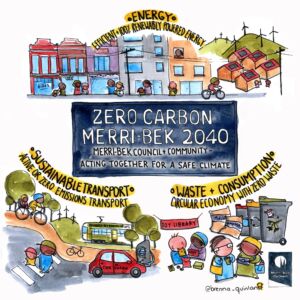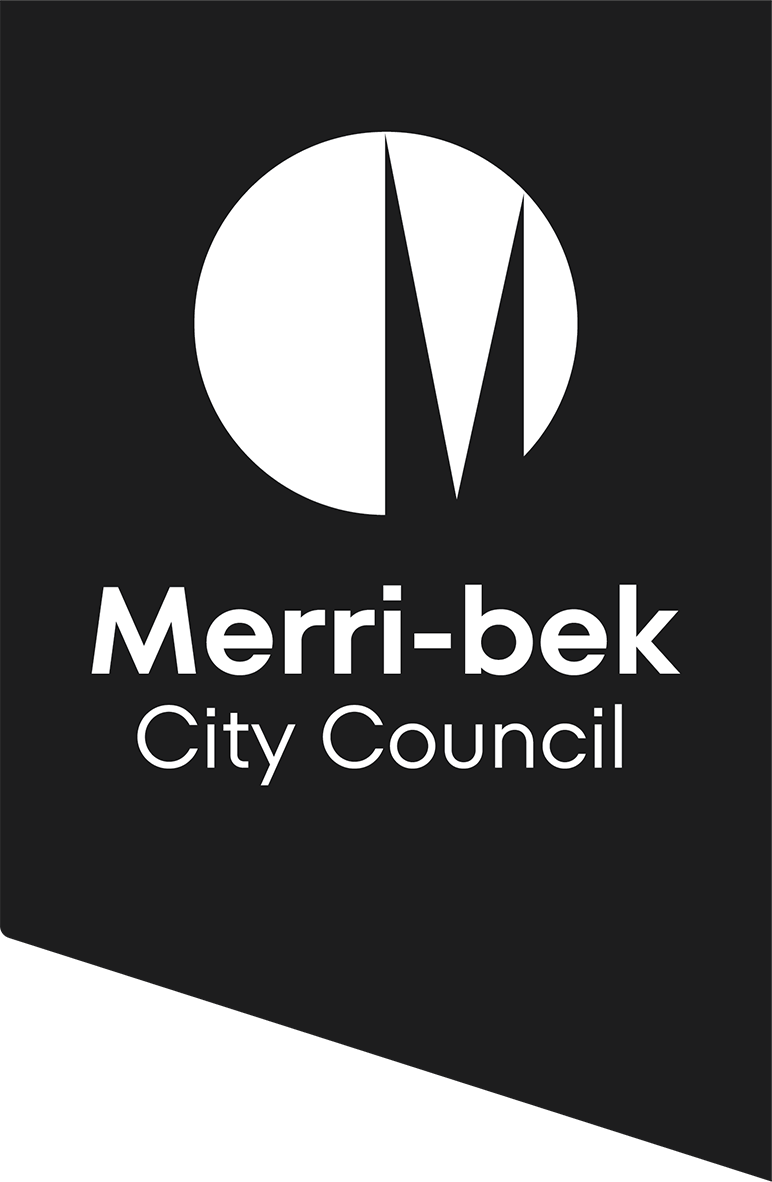What is Zero Carbon Merri-bek?
Zero Carbon Merri-bek is a community and council movement to achieve a safe climate for all of Merri-bek. More and more households, businesses and councils are facing the urgent challenge of responding to the climate emergency, together.
Zero Carbon Merri-bek was co-created by the Merri-bek City Council and our community. This collaboration led to the Zero Carbon Merri-bek Framework 2040 and the first five years Action Plan.
The strategy aims to engage all members of our community including residents, businesses, schools, local community groups, as well as Council itself, to take action to transition our community to zero carbon.
It is Council’s adopted goal for the Merri-bek community to achieve 75% emissions reduction by 2030 (against 2011/12 baseline), net zero by 2035 and drawdown (‘negative emissions’) by 2040.
For Council (corporate/operational) emissions we have a highly ambitious target range of between 80 – 100% reduction by 2030 (precluding offsets, against 2011/12 baseline).
By working together we can create a safe climate and a thriving Merri-bek.



